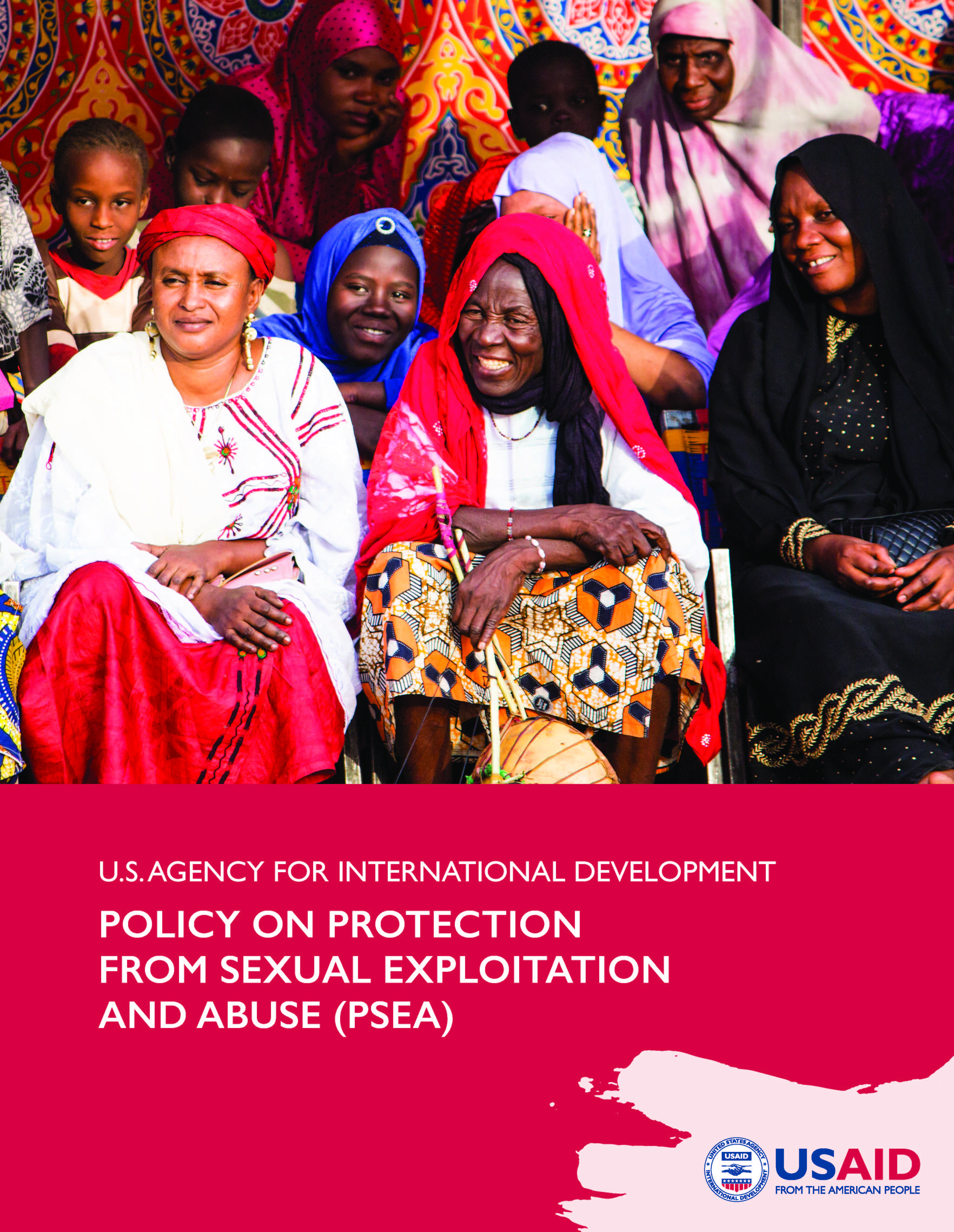- Work With USAID
- How to Work with USAID
- Organizations That Work With USAID
- Find a Funding Opportunity
- Resources for Partners
- Preventing Sexual Misconduct
- USAID Partners
- Acquisition & Assistance Ombudsman
- Acquisition & Assistance Policy Directives
- Development Information Solution (DIS)
- Indirect Cost Rate Guide for Non-Profit Organizations
- Procurement Executive Bulletins (PEBs)
- Progress Report - Fiscal Report 2019
- Implementing Partner Notices Portals
- Partner Vetting System
- Branding
- COVID-19 Guidance For Implementing Partners
- Preparing for a World Altered by COVID-19
- Section 889 Partner Information
- Careers
- Get Involved
Speeches Shim
The U.S. Agency for International Development (USAID) will promote a world in which all individuals are able to live and work free from sexual exploitation and abuse (SEA). For the purposes of this Policy,“sexual exploitation” is any actual or attempted abuse by aid workers of a person in a position of relative vulnerability, for sexual purposes, including profiting monetarily, socially, or politically. “Sexual abuse” is any actual or threatened physical intrusion of a sexual nature, whether by force or under unequal or coercive conditions.
We seek to prevent SEA and ensure people are able to access USAID-funded services and activities safely, provide robust feedback to our implementing partners to mitigate risk, and facilitate the secure reporting of SEA violations when they occur.
We take a survivor-centered approach to SEA allegations, wherein we place the survivor’s experiences, considerations, and needs at the center of the process, with appropriate due process and accountability for alleged perpetrators of abuse. When the survivor is a child, the approach must consider the best interests of the child and engage with the family/caregivers as appropriate.
We will pursue collaboration with stakeholders across the aid sector in recognition of our collective responsibility for preventing and responding to SEA. We have zero tolerance for inaction on allegations of SEA, which means USAID staff must treat every allegation seriously and pursue appropriate action with the implementing partner involved to resolve it.
In preventing and responding to SEA, we will focus on three mutually reinforcing objectives:
- Educating and empowering USAID staff;
- Changing how we do business, and;
- Holding each other accountable.
Each of these objectives integrates cross-cutting principles and approaches to prioritize prevention and survivors’ needs, lead through change from within, work with others to achieve system-wide change, adapt to each context in which we work, and amplify the voice and power of the people we serve. Taken together, the PSEA Policy will seek to achieve the following outcomes:
- Improve our performance in addressing SEA allegations to ensure timely and consistent response to each incident and, through due process, hold perpetrators accountable;
- Improve communication and engagement with the populations we serve in our development and humanitarian-assistance programs; and
- Reduce incidents of SEA significantly over the long term (although reports of SEA could increase in the near term as confidence in the PSEA Policy spurs increased reporting).


Comment
Make a general inquiry or suggest an improvement.